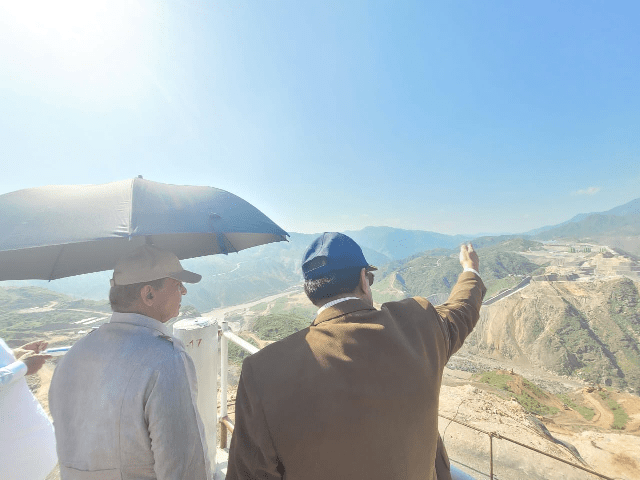Peshawar:
Federal Minister of Water Resources, Muhammad Moin Wattoo, has issued a strict warning against any attempt to disrupt Pakistan’s water supply and called such acts “an act of war.” He emphasized that the government will not tolerate any violation of the country’s hiking rights.
When he spoke at the inauguration ceremony for Mohmand Dam-Phase-II, the minister emphasized the critical role of water in Pakistan’s survival and progress.
“No one has the right to take our water. Blocking it is equivalent to waging war against us,” Wattoo said.
He referred to the Indus Waters Treaty and confirmed that both Pakistan and India are legally bound to honor its terms.
“This is a binding agreement with full legal validity. Its suspension or violation is not tolerated under any circumstances,” he warned.
Progress at Mohmand Dam
Wattoo noted that the construction of the Mohmand dam is progressing quickly and is expected to be completed by 2027 or 2028. However, he assured the public that the government is striving to implement it prior to the plan.
He also praised contributions from Chinese engineers working on the project.
“It’s really commendable that Chinese engineers work day and night to ensure timely implementation of this crucial infrastructure,” he said.
Wattoo repeated the government’s obligation to allocate all available resources to ensure a quick completion of the dam.
Economic and environmental impact
When operational, the Mohmand damp generates the 800 megawatts clean, affordable hydropower and brings thousands of hectares of land during irrigation. It is expected to significantly improve the local economy by creating jobs and increasing agricultural productivity.
Wapda President LT Gen (Ret.) Sajjad Ghani was also present at the ceremony.
Located on the Swat River in the Mohmand district of Khyber-Pakhtunkhwa, the dam is ready to be the fifth largest concrete surface rock-filled dam (CFRD) in the world, which stands at 213 meters high. It will have a storage capacity of 1.29 million acre feet that brings 18,233 hectares of new land in Mohmand and Charsadda districts during cultivation, while also supporting irrigation to another 160,000 hectares of existing agricultural land.



